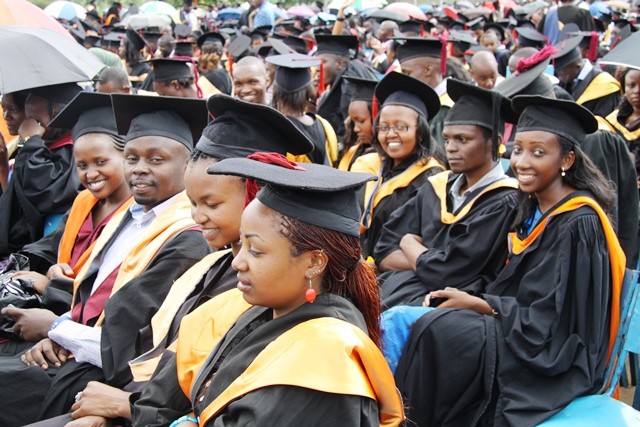Creating employment opportunities for the youthful population is very important for creating high income economy and off- farm jobs. (Photo/ File)
The Term Demographic dividend refers to the growth in an economy that is the result of a change in the age structure of a country’s population.
It is in this quest the government of Rwanda trying to achieving a middle income economy by 2035 and high income country by 2050. Rwanda commissioned the demographic dividend study in order to assess the socio-economic and human potential in short, medium and long term period using a comprehensive approach.
The government acknowledge that the targeted strategic actions were required to unlock the potential of the next generations of healthier, well-educated labor force considering the youthful population of Rwanda are aged between 15-35 and children from 0-14 accounts for 38% and 40% of total population respectively compared to 22% of population above 35 years that is according to data from the National Institute of Statistics (NISR).
If Rwanda has to take advantage of Demographic Dividend, it is imperative that the country invests in education and health in order for the youthful population to acquire necessary and much needed skills in the workforce.
EAREqually investing in health including reproductive health which is needed not only to trigger a demographic transition through declining fertility and mortality rates, but also to ensure young people make a healthy transition to adulthood.
Comparing to the Asian tigers that is to say, Malaysia, Singapore, Thailand and Taiwan, Rwanda needs to accelerate inclusive economic growth that creates enough decent jobs for the growing youthful working age population this will harness chances of the Demographic Dividend and achieving the country’s long-term development aspirations
Again for Rwanda building on the progress the country has made in reducing gender inequalities, future efforts should focus on increasing enrolment of women in tertiary education, enhancing employment of women in non-agricultural sector and enhancing access to financial credit and loans.
Dr Faustin Mutwarasibo, a statistician and a lecturer at the university of Rwanda says; “for Rwanda to achieve its demographic dividend aspirations like it’s counterparts in Asia it needs to take a multi sectoral holistic approach in every step of implementation. We have seen it work for example Singapore and Kenya had the same poverty rates and the GDP of Singapore was lower than that of Kenya but because of corruption and bad governance in Kenya you can see the difference between the two countries today, Singapore is double that of Kenya.”
By 2023 the GDP of Kenya was $415.34 billion, while that of Singapore the official estimate for GDP was $618 billion at the end of 2023 in purchasing power parity terms.
According to a recent study, sub-Sahara could add an additional 12% (an estimated $ 300 billion) to its annual GDP in 2025 if the gender gap is closed between men and women. UNDP human development report of 2016 estimates that the total annual losses due to gender inequalities in labor marker have averaged $ 95 billion per year since 2010 in sub Saharan Africa. Also a study by the International Monetary Fund (IMF) has shown that Rwanda’s economy grows by 2.2% faster than other African Economies and the growth is attributed to gender equality measures.
earA key first step for Rwanda to reduce the child dependency ratio and open the window of opportunity for harnessing Demographic Dividend is to facilitate rapid voluntary fertility decline by ensuring universal access to family planning, keeping girls in school and enhancing female education and reinforcing efforts in reducing child mortality.
Therefore, if Rwanda is to achieve its Demographic Dividend dream of becoming like Asian tigers, good governance and accountability is a key cross-cutting pillar that is central to the success of other pillars of the DD.
Good governance and enriching the culture of accountability in all spheres of development will be vital in bridging policy to implementation gap, ensuring value for money in service delivery, and providing conducive business environment to attract direct foreign investment.
By : RUTEMBESA Innocent @ Eastafricanreport.com













